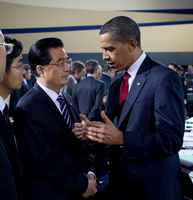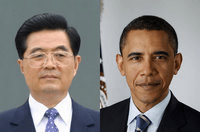
Last month, Republicans bashed President Barack Obama for not meeting with the Dalai Lama during his swing through Washington, portraying the president as caving to pressure from Chinese “tyrants” who hold trillions of dollars in U.S. debt and view the Tibetan spiritual leader as Public Enemy No. 1. “You can bet the Chinese are using their influence in ways we do not even know about,” warned Rep. Dana Rohrabacher, the Republican co-chair of the Congressional Tibet Caucus. “This goes way beyond the Dalai Lama. The U.S. has permitted China to have a one-way free trade policy for decades, and now […]






